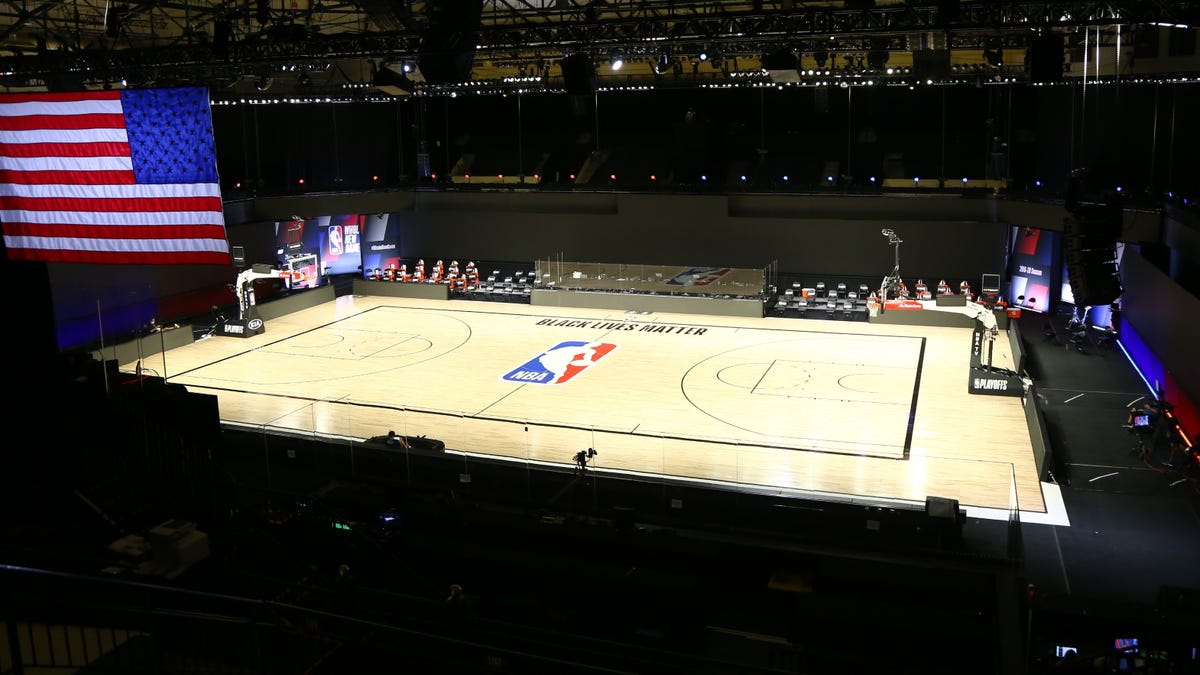The Difference Between a Strike and a Boycott - 5 minutes read
 Photo : Kim Klement ( Getty Images )
Photo : Kim Klement ( Getty Images )If you follow sports at all (or even if you don’t), you probably noticed that neither the NBA nor WNBA played any of the games they were scheduled to play yesterday. It started with the Milwaukee Bucks refusing to play their scheduled playoff game with the Orlando Magic, and quickly snowballed into no basketball games being played at all, and some baseball and soccer games not happening as well.
Advertisement
The fact that no games took place is undeniable (and unprecedented), but there seems to be a lot of confusion over exactly what to call this sudden lack of sports. “Boycott,” “strike,” “work stoppage,” and the very gentle “postponement” have all been used by the workers (that is, players), management and/or the press to describe what happened, but these words all have very specific meanings and connotations, particularly “boycott” and “strike.”
Advertisement
For starters, this was not a mere “postponement,” and referring to it as such takes away from what these workers have done. A postponement is something that happens because of inclement weather, and both the NBA and WNBA (who have been committed to taking action for some time now) have been very clear about the fact that they are withholding their labor in response to the police shooting of 29-year old Jacob Blake that happened in Kenosha, Wis., last Sunday.
Screenshot : Instagram
Several players, including LeBron James, have referred to the lack of basketball as a “boycott,” but that’s not quite right either. (The players may have their reasons for using this terminology however, and we’ll get to that in a moment.)
Before we go any further, let’s back up and examine the definition of the words “strike” and “boycott.” According to Oxford Languages, a strike is “a refusal to work organized by a body of employees as a form of protest, typically [empahsis mine] in an attempt to gain a concession or concessions from their employer.” A boycott is “a punitive ban that forbids relations with certain groups, cooperation with a policy, or the handling of goods.” To boycott something means to “withdraw from commercial or social relations with (a country, organization, or person) as a punishment or protest.”
Advertisement
These workers are refusing to work as an organized body to protest police brutality and demand justice for Jacob Blake, which makes this a strike, not a boycott. ( The players are not telling their fans to not buy tickets or merchandise from the NBA, or telling other companies to not do business with the NBA, which are just two examples of a what boycott could look like .)
Advertisement
So why would James and other players refer to it as a “boycott”? That could have to do with the legality of the strike.
Advertisement
Like so many collective bargaining agreements, the NBA’s has a “no-strike and no-lockout” clause, which expressly forbids this kind of thing. (If any of you out there plan to bargain a new contract soon, try to keep this clause out of it!) This makes this action a “wildcat strike,” which is not technically legal (and can have very serious legal repercussions), but it is extremely badass. According to two labor law experts the Los Angeles Times talked to, the wildcat nature of the strike could be why we’ve seen players publicly using the word “boycott”:
“From a pure legal standpoint, I would term these wildcat strikes,” said Joseph Longo, an adjunct professor who teaches sports law at Loyola Law School. He’s also an attorney and MLB player agent. ... “I think it’s a euphemism for a work stoppage,” Thomas Lenz, a law lecturer at USC and attorney specializing in labor and employment law, said of players describing the postponements as boycotts. “When employees decide to withhold their services … that is technically strike activity.”
Advertisement
Could the NBA take legal action against the players? Probably, if they wanted to. (In my experience, bosses do not care how you brand a work stoppage; you could call it a “boycott” or “a trip to Chuck E. Cheese,” and they would still react as if you were striking.) But taking swift legal action against these workers would look pretty bad, considering what they’re striking for. They’re not striking for better pay, healthcare, or improved working conditions for themselves; they are striking for social justice and change, and refusing to let things in their corner of the world continue to go on like everything is normal and okay.
This Is Patriotism When, in the course of human events, it becomes necessary for one people to dissolve the political… Read more
Advertisement
And, though the NBA released a statement last night announcing the games were “postponed” and would be “rescheduled,” it does not feel (to me, at least) like it is the NBA that is making the calls. This is collective action. It is worker-led. It is a strike.
08/27/2020, 2:59 pm EST: This story was updated to include an example of what a boycott might look like.
Source: Lifehacker.com
Powered by NewsAPI.org